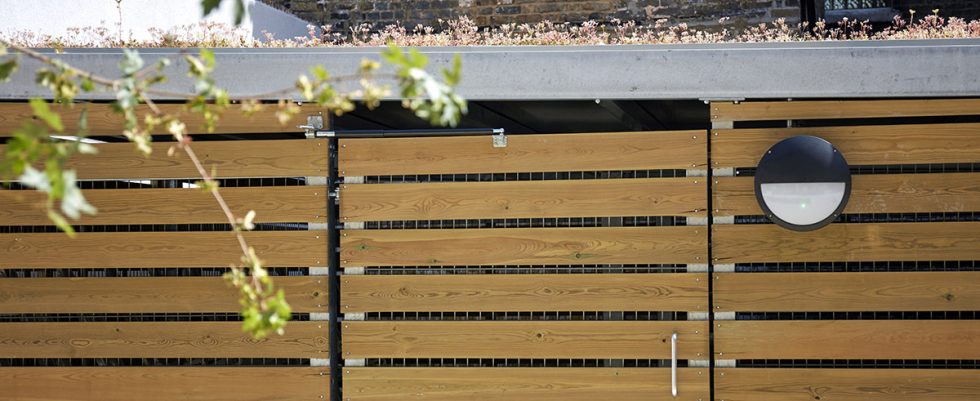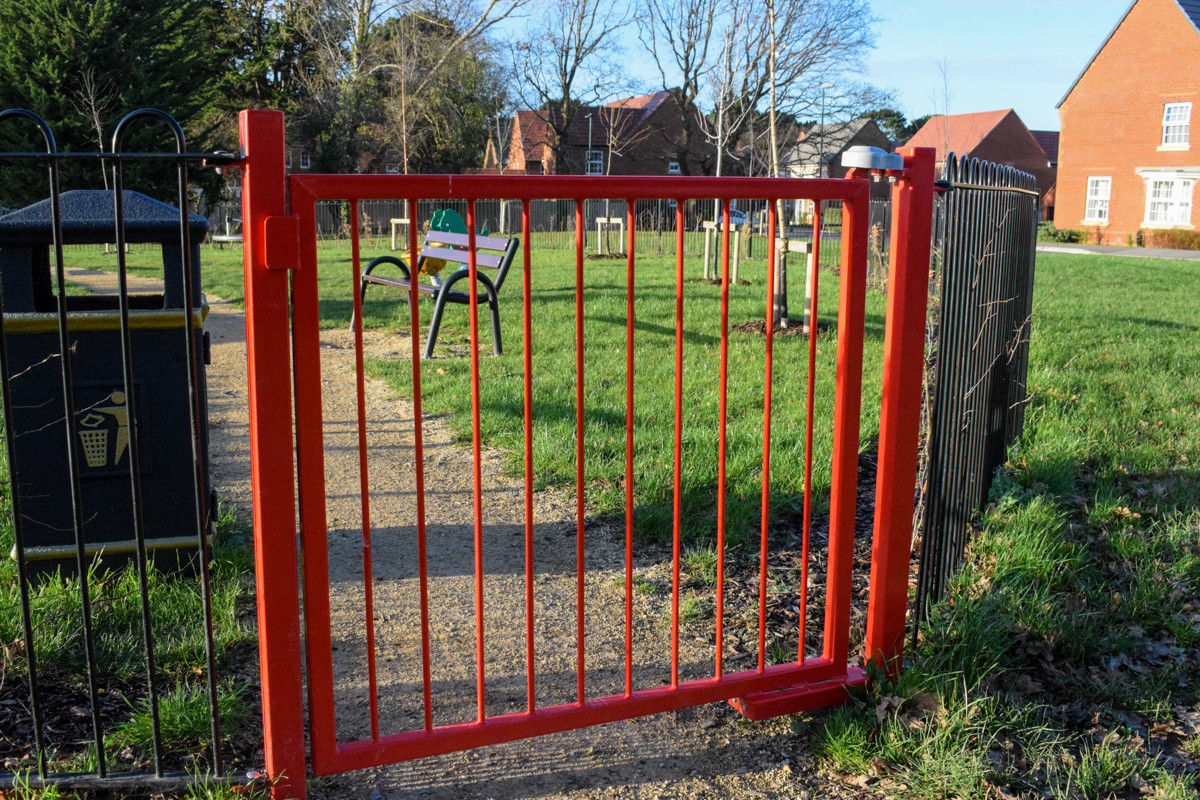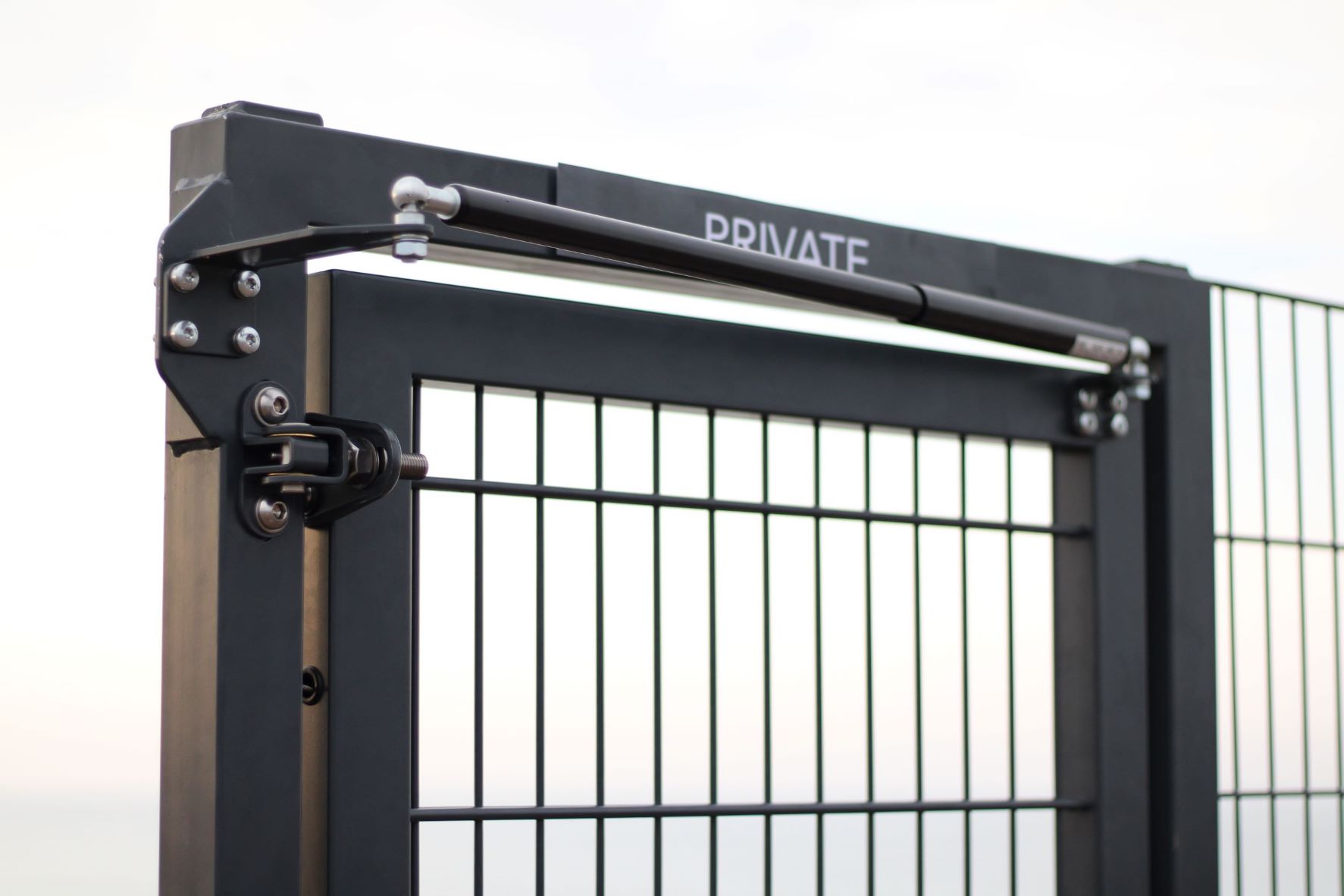Closing mechanisms: How to make your gate close automatically
Gates that are left open aren’t only a security or safety risk. An uncontrolled, open gate blowing open and closed in the wind can damage the gate hardware and the gate frame itself.
The best way to avoid this is of course to ensure the gate is closed every single time after use. But we all know it isn’t enough to put a sign up saying “Please close the gate behind you”. People forget or have their hands full and so, the gate remains open until someone notices.
Luckily, it is easy to sort this for your customers by using a gate closing mechanism on their gate. In this blog we will tell you a bit more about the different types of gate closers out there focusing on uncontrolled and controlled gate closers.
Main types of gate closing mechanisms
When we talk about gate closing mechanisms, we have to distinguish between uncontrolled and controlled closes. In this section, we’ll cover the difference a few common types of closers within each group.
Uncontrolled closers
An uncontrolled closer is a gate closer which only closes the gate. It doesn’t have any dampening effect, meaning the gate will close very quickly behind you. This can be useful on gates that aren’t used or maintained very often but shouldn’t be used when children or elderly need to use the gate often.
There are many varieties of uncontrolled gate closers, but we will only cover the main two ones: gravity closers and spring closers.
Gravity closers
A gravity is a gate closer that works by using gravity as the main closing function. They are commonly simple mechanisms and can be anything from a heavy object on a chain attached to the gate, to a rising hinge. Both of which will pull the gate shut when it is let go.
As you can imagine, this has immediate effect, and the gate will close very quickly. Although, you can get rising hinges with dampeners, these are commonly made only for internal doors and would not be suitable for external gates.
Spring assisted closers
Another solution that is commonly seen, is a spring-assisted gate closer. Again, a simple way of closing a gate that doesn’t offer any softening or slowing down the actual close. The spring would be attached to the gate and the back of the gate post. When you open the gate, the spring would be stretched causing it to shut the gate when let go.
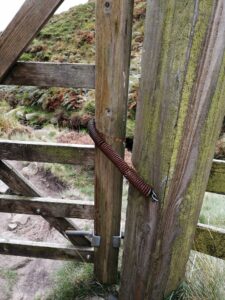
Both of these solutions are adored and widely used across the UK. Spring closers are notoriously known to close the gate very quickly, which can cause injuries if it hits the person walking through the gate. There is little warning with an uncontrolled gate, which is bad news for finger entrapment.
Controlled gate closers
Controlled gate closing mechanisms offer that softer close we all know from our kitchen cupboards. But there are again a few ways of doing this. The main ones we do are hydraulic or gas strut closing mechanisms.
Hydraulic gate closers
These closing mechanisms use a hydraulic pressure system to dampen the close. Taking our APS closer as an example, this is actually spring-operated but is then slowed down by using pressurized oil within. The result is a controlled gate closure.
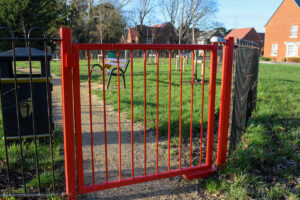
The best part is that the APS is also two-speed adjustable meaning you can adjust the closing and the final latching speed. If you are after a gate closer that is suitable for playgrounds or areas with children, this is the one we would recommend.
Gas strut
The other option is a gas strut closer, which works in a similar way. Instead of hydraulics though, a gas strut uses compressed gas to dampen the close. Our GSB is a gas strut and can even be retrofitted thanks to its simple brackets.
The best thing about the above two options is that they don’t require any power unlike automated gate closers, which are fully electronically controlled and can be operated from your phone for instance. Although these also offer a controlled close, they also often come at a premium and are found on large driveway gates but can be trickier to install.
Why we recommend a controlled gate closing mechanism
As described above, a controlled gate closer offers a way to close the gate in a dampened way. Although it’s not necessary for every type of gate, it is the safest to make your gate close automatically. As a bonus tip, to help the gate close, we also recommend you use an auto-latching lock. This will make sure your gate latches every time, which means fewer open gates and headaches.
Because open gates beat the purpose of having a gate in the first place and a gate closer can help you give your customers peace of mind.
Bear in mind, there are specific requirements for self-closing gates on playgrounds or public areas used frequently by children. We highly recommend that you familiarize yourself with these on RoSPAs website or read this blog from one of our distributors outlining a few basic tips.

